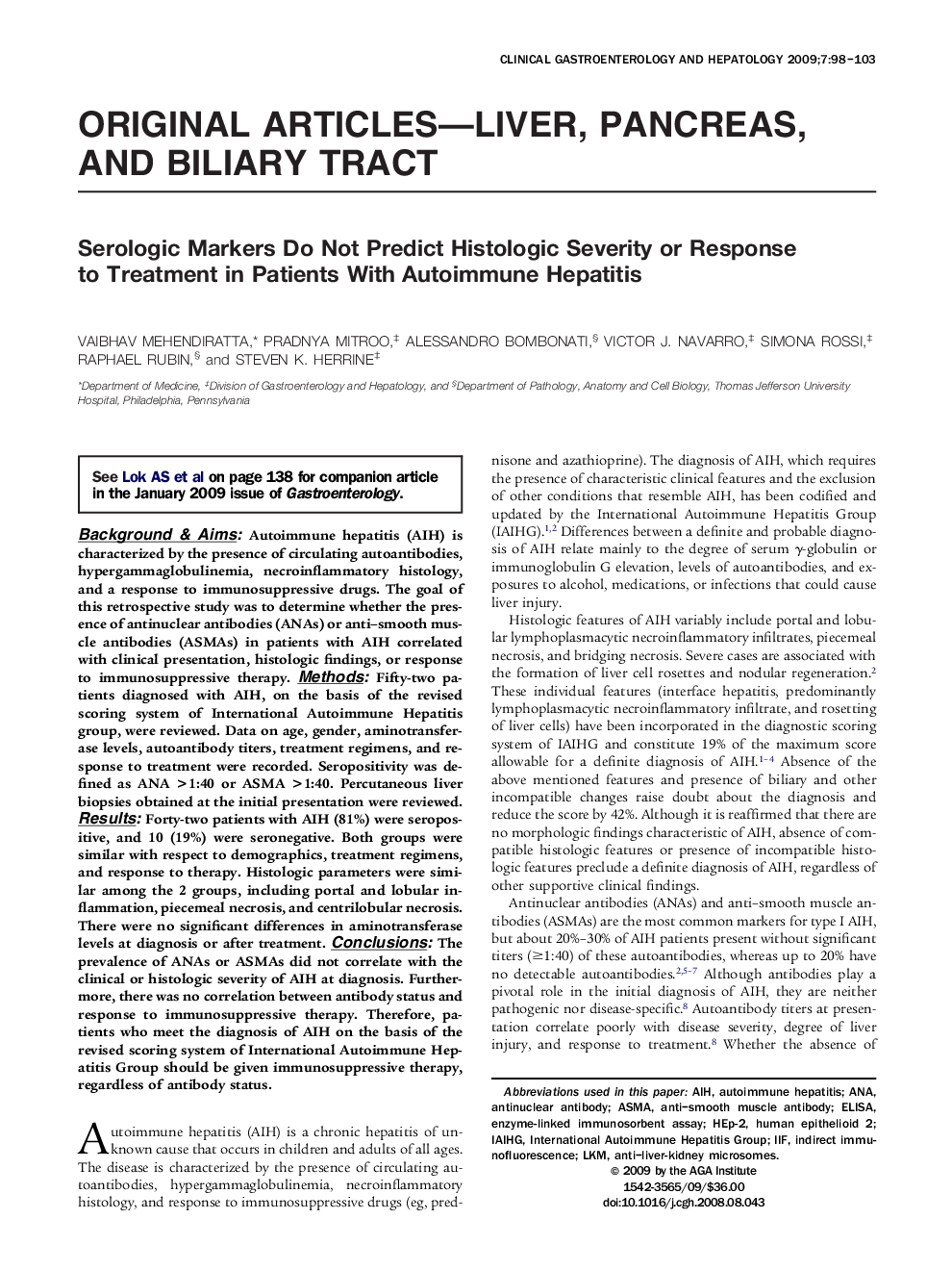| Article ID | Journal | Published Year | Pages | File Type |
|---|---|---|---|---|
| 3284464 | Clinical Gastroenterology and Hepatology | 2009 | 6 Pages |
Background & AimsAutoimmune hepatitis (AIH) is characterized by the presence of circulating autoantibodies, hypergammaglobulinemia, necroinflammatory histology, and a response to immunosuppressive drugs. The goal of this retrospective study was to determine whether the presence of antinuclear antibodies (ANAs) or anti–smooth muscle antibodies (ASMAs) in patients with AIH correlated with clinical presentation, histologic findings, or response to immunosuppressive therapy.MethodsFifty-two patients diagnosed with AIH, on the basis of the revised scoring system of International Autoimmune Hepatitis group, were reviewed. Data on age, gender, aminotransferase levels, autoantibody titers, treatment regimens, and response to treatment were recorded. Seropositivity was defined as ANA >1:40 or ASMA >1:40. Percutaneous liver biopsies obtained at the initial presentation were reviewed.ResultsForty-two patients with AIH (81%) were seropositive, and 10 (19%) were seronegative. Both groups were similar with respect to demographics, treatment regimens, and response to therapy. Histologic parameters were similar among the 2 groups, including portal and lobular inflammation, piecemeal necrosis, and centrilobular necrosis. There were no significant differences in aminotransferase levels at diagnosis or after treatment.ConclusionsThe prevalence of ANAs or ASMAs did not correlate with the clinical or histologic severity of AIH at diagnosis. Furthermore, there was no correlation between antibody status and response to immunosuppressive therapy. Therefore, patients who meet the diagnosis of AIH on the basis of the revised scoring system of International Autoimmune Hepatitis Group should be given immunosuppressive therapy, regardless of antibody status.
